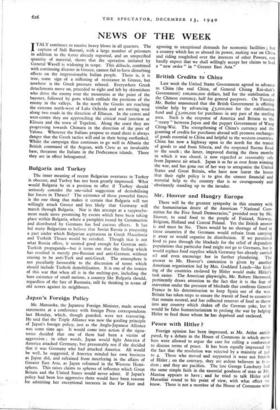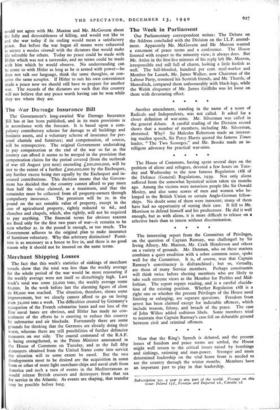Peace with Hitler ?
Foreign opinion has been impressed, as Mr. Attlee antici- pated, by a debate in the House of Commons in which mem- bers were allowed to argue the case for calling a conference to discuss terms of peace. It has been equally impressed by the fact that the resolution was rejected by a majority of 341 to 4. Those who moved and supported it were not friends of Hitler ; on the contrary, they are ardent believers in fre- dom ; and they are pacifists. The late George Lansbury had the same simple faith in the gssential goodness of man as Mr. Maxton appears to have ; and he tried to talk Hitler and Mussolini round to his point of view, with what effect we know. There is not a member of the House of Commons who would not agree with Mr. Maxton and Mr. McGovern about the folly and detestableness of killing, and would not like to end the war today if its ending would mean a satisfactory peace. But before the war began all means were exhausted to secure a modus vivendi with the dictators that would make life tolerable for others. Today no peace could be made with Hitler which was not a surrender, and no terms could be made with him which he would observe. No understanding can be come to with Hitler as long as he is armed with power—he does not talk our language, think the same thoughts, or con- ceive the same scruples. If Hitler to suit his own convenience made a peace now we should still have to piepare for another war. The records of the dictators are such that this country will not believe that any peace worth having can be won while they -are where they are.











































 Previous page
Previous page